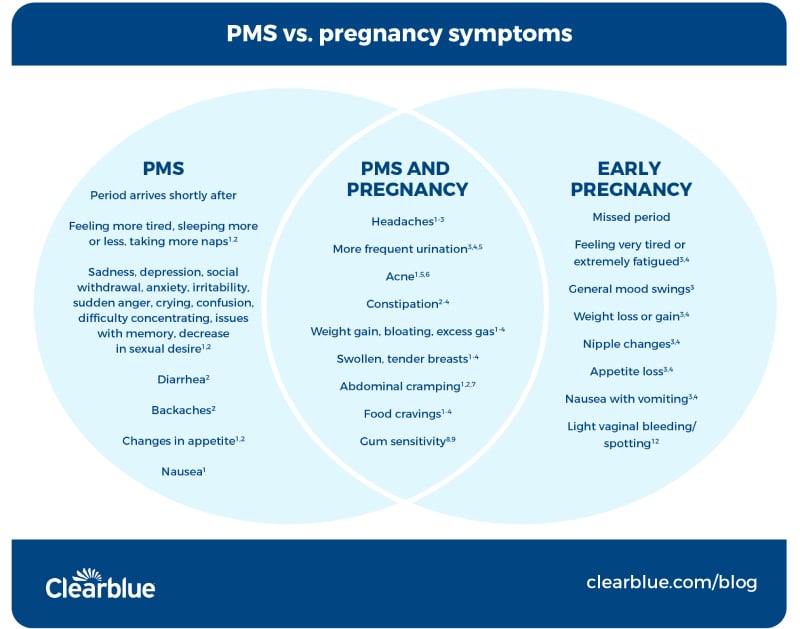
Pregnancy Symptoms: A Comprehensive Guide
Pregnancy is a transformative journey marked by a myriad of physical, emotional, and hormonal changes. Understanding these changes can help expectant mothers navigate the pregnancy period with greater comfort and confidence. One of the most prominent aspects of pregnancy is the presence of various symptoms, which can range from mild to severe and vary from woman to woman.
Early Pregnancy Symptoms
- Missed period: The absence of a menstrual period is often the first indication of pregnancy.
- Tender breasts: Increased sensitivity and enlargement of the breasts are common early signs.
- Nausea and vomiting (morning sickness): This is a common symptom that typically begins around the sixth week of pregnancy and subsides by the fourth month.
- Fatigue: Extreme tiredness is a prevalent symptom throughout pregnancy.
- Frequent urination: Increased production of pregnancy hormones leads to a more frequent need to urinate.
- Implantation bleeding: Some women experience light spotting or bleeding around the time of implantation, which occurs about 10-14 days after conception.
- Mood swings: Hormonal fluctuations can trigger emotional changes, including irritability, moodiness, and heightened sensitivity.
First Trimester Symptoms
- Morning sickness: This symptom may persist or intensify during the first trimester.
- Fatigue: Extreme tiredness remains a common symptom.
- Breast changes: Breasts continue to enlarge and become more tender.
- Frequent urination: The need to urinate frequently persists.
- Constipation: Progesterone, a pregnancy hormone, can slow down digestion, leading to constipation.
- Heartburn: The growing uterus can put pressure on the stomach, causing heartburn.
- Headaches: Hormonal changes and increased blood flow can trigger headaches.
- Dizziness: Low blood pressure and hormonal fluctuations can lead to feelings of dizziness.
- Food cravings and aversions: Changes in taste and smell can result in intense cravings for certain foods and aversions to others.
Second Trimester Symptoms
- Increased energy: Many women experience a surge in energy during the second trimester.
- Fetal movement: Around the 18th to 22nd week, expectant mothers may begin to feel the baby’s movements.
- Uterine growth: The uterus expands rapidly, causing the abdomen to protrude.
- Weight gain: Steady weight gain is expected during the second trimester.
- Skin changes: Increased pigmentation may occur, leading to darkening of the skin around the nipples, underarms, and groin area.
- Varicose veins: Increased blood flow can cause varicose veins to develop in the legs.
- Hemorrhoids: Constipation and increased pressure on the pelvic area can lead to hemorrhoids.
Third Trimester Symptoms
- Frequent urination: The growing uterus continues to put pressure on the bladder, increasing the frequency of urination.
- Pelvic pain: As the baby descends into the pelvis, expectant mothers may experience pelvic pain and pressure.
- Back pain: The weight of the baby and the expanding uterus can strain the back muscles.
- Leg cramps: Increased weight and pressure on the nerves can cause leg cramps.
- Swelling: Fluid retention can lead to swelling in the hands, feet, and ankles.
- Braxton Hicks contractions: These irregular contractions prepare the uterus for labor.
- Nesting instinct: Many women experience a strong urge to prepare their home and belongings for the baby’s arrival.
When to Seek Medical Attention
While most pregnancy symptoms are normal, certain symptoms may warrant medical attention:
- Severe nausea and vomiting that persists or worsens
- Vaginal bleeding or spotting
- Abdominal pain or cramping
- Persistent headaches or dizziness
- High fever
- Sudden weight loss or gain
- Changes in fetal movement
Managing Pregnancy Symptoms
- Rest: Adequate rest can help alleviate fatigue and other symptoms.
- Healthy diet: A balanced diet provides essential nutrients for both the mother and the baby.
- Exercise: Regular exercise can improve circulation, reduce stress, and strengthen muscles.
- Prenatal vitamins: Taking prenatal vitamins helps ensure adequate intake of essential nutrients.
- Hydration: Staying hydrated is crucial for overall health and well-being.
- Over-the-counter medications: Certain over-the-counter medications, such as acetaminophen, can relieve mild discomfort.
- Alternative therapies: Acupuncture, massage therapy, and yoga can provide relaxation and pain relief.
Conclusion
Pregnancy symptoms are a natural part of the journey and can vary significantly from woman to woman. Understanding these symptoms and knowing when to seek medical attention can help expectant mothers navigate this transformative period with greater comfort and confidence. By embracing self-care practices and maintaining open communication with their healthcare providers, women can optimize their pregnancy experience and prepare for the arrival of their little one.